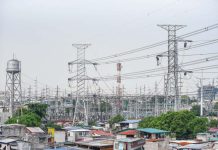A BUSINESS group underscored that cost, regulatory, and supply challenges have threatened waste-to-energy (WTE) projects in the Philippines.
On Monday, July 7, a policy note from the Makati Business Club (MBC) stated that unresolved cost, regulatory, and supply challenges continue to cast doubt on the sector’s viability.
It stressed that cost remains to be the biggest barrier in achieving these projects.
”WTE is significantly more expensive than landfill disposal, which continues to dominate LGU (local government unit) waste management decisions due to its lower upfront cost,” the MBC said.
The policy note also emphasized the need for well-defined rules and improved coordination between national agencies and local government units when it comes to waste-to-energy programs.
“A system-wide view of procurement, infrastructure, and governance can help reduce risks and improve project outcomes,” it said.
Meanwhile, another key challenge for WTE was the supply of waste or feedstock as most localities do not generate enough waste on their own in order to sustain a WTE facility.
The MBC noted that stronger regional cooperation, such as clustering LGUs to pool waste, would be essential to support larger-scale WTE projects.
Recently, a roundtable, which included representatives from the Department of Energy (DOE), Department of Environment and Natural Resources (DENR), Department of Interior and Local Government (DILG), took place along with WTE developers, utilities, and waste service providers.
The meeting highlighted their shared commitment to resolve persistent barriers facing the sector.
Marcos had expressed support for WTE as he also sees this as a tool to address flood problems in the country. (GMA Integrated News)







